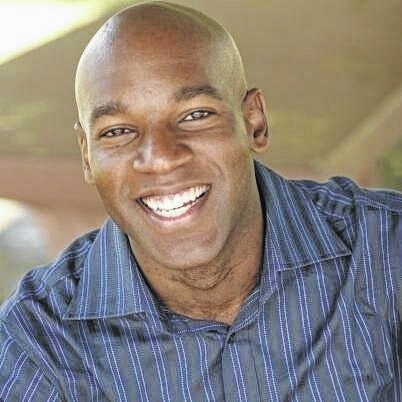No matter what you’re trying to achieve, you’re going to have to begin at a specific starting point. And since you would never set out to achieve something if you were already completely satisfied, that means your starting point is going to be less than satisfactory.
Let’s put this another way:
If you’re at point A and you want to get to point B, that’s because you’re not completely fulfilled at Point A. You may have a positive outlook while you’re at Point A, but your desire to get to Point B is proof that you want more out of life than what Point A has to offer you. So if Point A is your starting point and Point B is your goal, then Point A is going to feel less satisfying than Point B.
The starting point usually seems less satisfying than the ideal. That’s what makes it the starting point.
This probably seems too simple to even be worth explaining, but it’s the failure to appreciate this simple distinction that often stops us from pursuing worthy ideals.
Whenever a visionary points out the possibility of creating something better, people are often inclined to respond with statements like “That’s a nice goal to have, but it doesn’t change the fact that the government still has its hands in my pockets with all these unfair taxes” or “I’d love to create a life like that, but it doesn’t change the fact that I currently have no money or connections.”
While statements like this are almost always undeniably true, they almost always miss the point. The whole point of striving for something better isn’t to deny the existence of something bad. It’s to affirm the possibility that we can gradually innovate our way around those bad things.
Everyone who has ever made a piece of art, started a successful revolution, built a profitable business, resolved a conflict in their relationships, or made an improvement in their lifestyle knows this one inescapable truth all to well: the starting point is real.
Yes, the starting point is real.
We are where we are and there’s nothing we can do about the fact that we are where we are. Maybe we are where we are because of political corruption. Maybe we are where we are because we were lied to or ripped off. Maybe we are where we are when we really should be somewhere else.
You’re never obligated to feel happy about where you are and why you’re there. In fact, if you were satisfied with where you are and why you’re there, there would be no point to having conversations about anything else. We would all just sit around the campfire and feel good. But life is a creative process. It’s a journey that involves growing, learning, improving, and building at every turn. And this means we all have to come to grip with our starting points. You have your starting points, I have mine, and others have theirs. Instead of using these starting points as a basis for giving up on optimism and hope, let’s use our starting points as motivation for giving everything we have to the dreams and ideals that make our lives worth living.
One of the number one dream slayers in the universe is what I call the “I shouldn’t have to” fallacy. This fallacy occurs when people refuse to do things that could change their lives because they’re too hung up on their personal opinions (or their objectively correct arguments) about what they shouldn’t have to do.
“I shouldn’t have to exercise creativity just to get something that I’m entitled to have.”
“I shouldn’t have to innovate my way around this stupid little rule.”
Well, maybe you shouldn’t. But there’s one little problem: We don’t live in the world that we should live in. We live in this world. This world is our starting point. And we’re never going to make this world better until we stop using our fantasies about how things should be as an excuse to avoid the reality of what we can do right now.
Are you ready to make some changes? Can you handle the truth about your starting point?
T.K. Coleman is the education director for Praxis and an adjunct faculty member for the Foundation for Economic Education.

